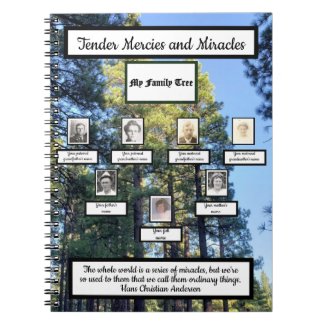When you write your story, include the ordinary things. What is an ordinary day like in your life? Sometimes ordinary things don't seem very important, but 100 years from now they could be very interesting. Your grandchildren and great-grandchildren may really want to know what an ordinary day was like for you. Things have changed over the years. Several years ago a mother might have spent an ordinary day caring for her children, walking them to school, preparing the family meals, cleaning the home, sewing clothing, growing a garden, harvesting and preserving the produce from the garden, mending clothing, and playing games with her children or reading books to them and singing songs before bedtime. Today a mother may pour bowls of prepared cereal for a quick breakfast and then drive the children to a care provider or school while she goes to work at a job for eight hours. After work she picks up her children, takes them to dance lessons, or music lessons, or sports practice, then she grabs fast food for supper since she is too tired to cook. She supervises the children's homework, turns on the television afterward to unwind, checks her email then plays her favorite music CD before drifting off to sleep. We spend our time today doing things that weren't even imagined 100 years ago, but it can be just as hard for someone living now to imagine what life was like 100 years ago. Recording the ordinary things from each day can help. So as you write your story, remember the ordinary things.
There are things about your family that only you know. There are stories your parents told you that no one else will know if you don't share them. Some day your children or grandchildren may want to know those stories. None of us know how long we will live, so now is the time to share those stories. This blog will give you ideas to help you with sharing those stories.
Saturday, April 19, 2008
Ordinary Things
When you write your story, include the ordinary things. What is an ordinary day like in your life? Sometimes ordinary things don't seem very important, but 100 years from now they could be very interesting. Your grandchildren and great-grandchildren may really want to know what an ordinary day was like for you. Things have changed over the years. Several years ago a mother might have spent an ordinary day caring for her children, walking them to school, preparing the family meals, cleaning the home, sewing clothing, growing a garden, harvesting and preserving the produce from the garden, mending clothing, and playing games with her children or reading books to them and singing songs before bedtime. Today a mother may pour bowls of prepared cereal for a quick breakfast and then drive the children to a care provider or school while she goes to work at a job for eight hours. After work she picks up her children, takes them to dance lessons, or music lessons, or sports practice, then she grabs fast food for supper since she is too tired to cook. She supervises the children's homework, turns on the television afterward to unwind, checks her email then plays her favorite music CD before drifting off to sleep. We spend our time today doing things that weren't even imagined 100 years ago, but it can be just as hard for someone living now to imagine what life was like 100 years ago. Recording the ordinary things from each day can help. So as you write your story, remember the ordinary things.
Subscribe to:
Comments (Atom)

